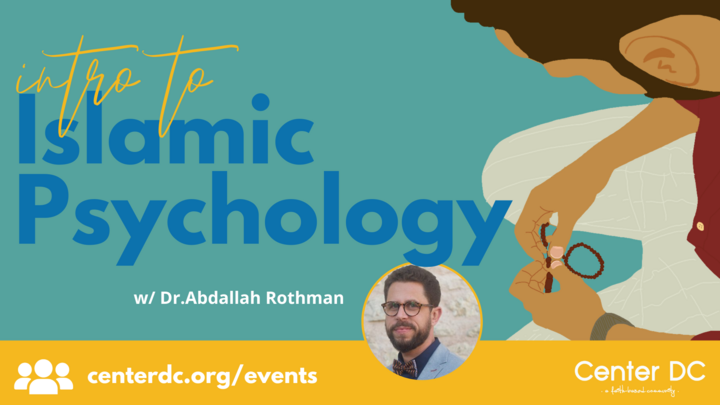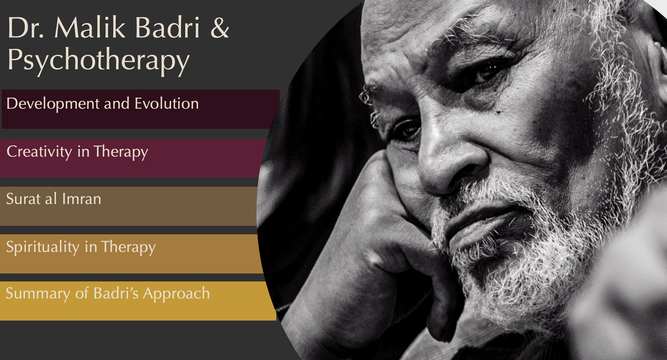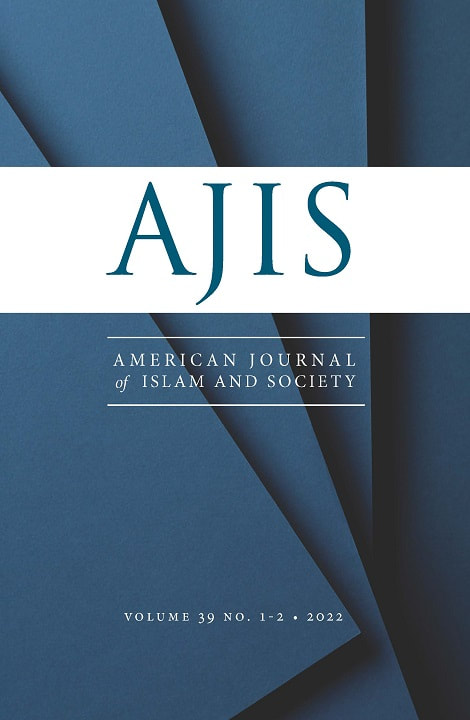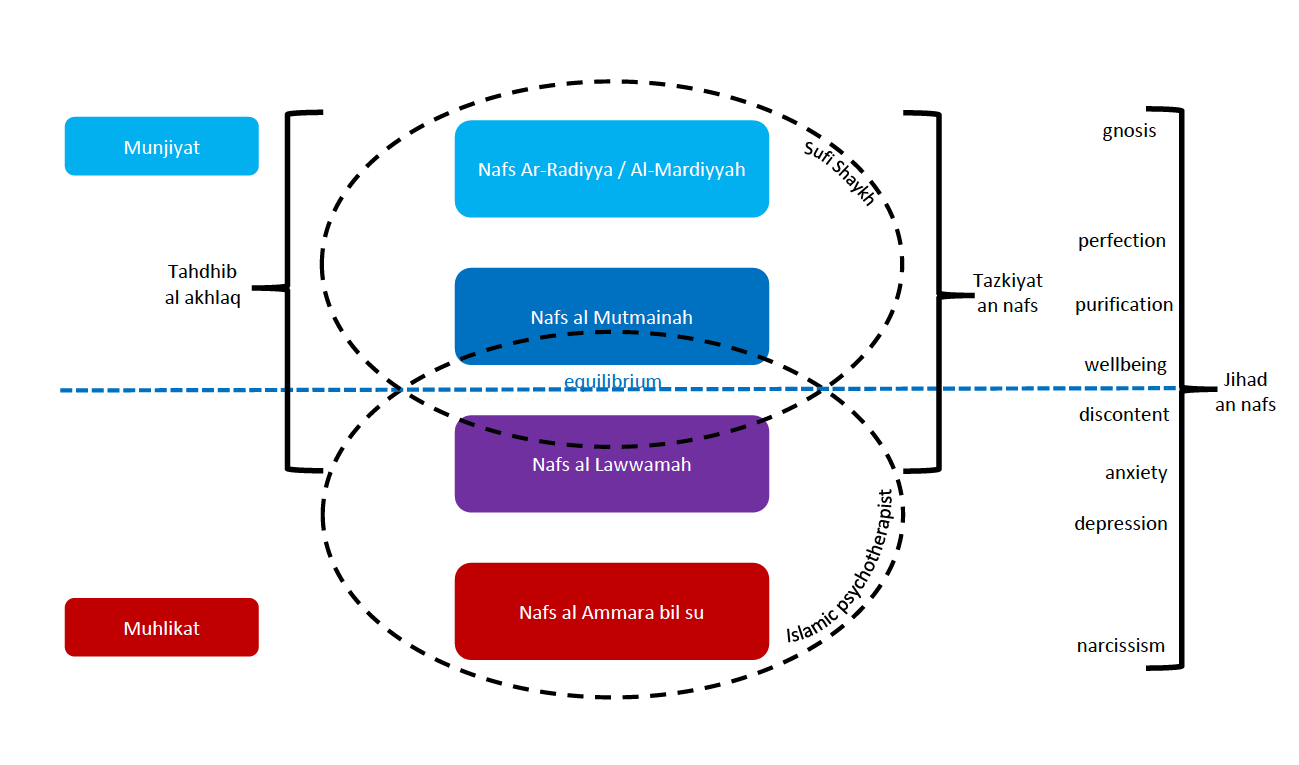|
Date: Monday June 26 Time: 6:30pm - 9:00pm EDT Location: Center DC HQ 1426 9th St NW Washington, DC 20001 It is said that one who knows their self knows their Lord. Self-knowledge is more than a recognition of our external personas and social identities. It involves deeper, often elusive aspects of the self which requires seeking and uncovering the hidden mysteries of the soul. While the academic and scientific field of psychology is where we tend to turn to find answers to these mysteries, popular theories of psychology ironically do not include the soul in their definitions and approach to self-knowledge and instead focus on what can be seen and measured, primarily cognition and behavior.
Islamic Psychology is a holistic approach which includes the seen and unseen dimensions of the self and which deals with the subject matter in a way that is more true to the meaning of the term psychology; as a ‘science of the soul’, or ‘ilm an nafs. The Islamic tradition offers us a vast resource and detailed guidance on how to not only know the self but also how to manage ourselves within this worldly life of ups and downs and trial and tribulation on a path of transformation. In this lecture, Dr. Abdallah Rothman discusses the path of Islam as a continuous process of self-development and transformation towards surrendering to Allah's will. Acts of worship are intended to be transformational, not just transactional. The guidance found in the Islamic tradition requires self-discipline and a constant struggle against our inner selves. Dr. Rothman outlines the "6 M's" for transformation, which are based on Book 38 of Imam Al-Ghazali's "Revival of the Religious Sciences," titled "On Vigilance and Self-Examination." This lecture is part of Cambridge Muslim College's Ramadan series "Educate, Elevate, Illuminate" Dr Abdallah Rothman talks about Mental Health and how to heal the stigma against it within the the Muslim community. He discusses: Common Misconceptions, Dispelling the Stigma, "Mental" Health from an Islamic Perspective, Psychology in the Islamic Tradition, Modern Psychology as a Science, Islamic Psychology, Faithful Wellbeing, Spiritual Bypassing, Islamic Principles of Wellness, Practical Tools & Practices. This presentation was delivered at Cambridge Central Mosque on 21 January 2023 as part of Mental Health & Wellness Day. Raising Muslim children in an increasingly secular world presents many challenges. As parents how do we balance our family and Islamic values with the competing values of peers and the larger secular society? What does Islamic tradition teach us about parenting and what guidance is there for us to understand what we need to do in order to balance our roles as parents in relation to God, self, and society? In this video, Dr. Abdallah Rothman shares guidance and practical tips to assist us in becoming self-aware parents and to help navigate the challenges of parenting Muslim children in today’s rapidly changing world. *A PDF handout referenced in the lecture is included in the description on Youtube. Dr Abdallah Rothman was invited as a guest on the Blogging Theology podcast where he speaks about What Islamic psychology is, its relation to Sufism, how Islam understands the soul, and what Western psychology can learn from Islam. At the ISIP Inaugural Conference in Istanbul on August 13, 2022, Dr. Abdallah Rothman talked about the application of Islamic Psychology in the realm of Islamic education. He emphasized how it is crucial for us to engage in acts of service in the community, physical training, and experiential learning in order to have a holistic approach towards mental health and the journey of purifying our souls and developing our character. Watch the video below. In the video Dr. Abdallah says: “The traditional approach to Tarbiyyah and the idea of Futuwwa was to embody these principles of wholeness and health and character development, that you can really say is an application of Islamic Psychology.” “When we are educating about Islam, what we are trying to do is not have the "Islam" only as what we are educating about, but the approach to education is Islamic. So it's not just about ta'lim (gaining knowledge), it's also about tarbiyyah (development) ; the way with which we work with students is an embodiment of being, ..there is a lot to learn, but it's also about transformation not just information. " Dr. Abdallah Rothman presented on the psychotherapeutic approach of the late Dr. Malik Badri at the 7th IAMP Conference on February 5 - 8, 2022, for the one year anniversary of his passing, God have mercy on his soul. Watch the video below.
This paper presents findings from a study which examined the application of an Islamic model of the soul in psychotherapy. It addresses the clinical scope of an Islamic psychotherapy. Interviews with 18 psychotherapists who believed that they integrate Islamic conceptions of psychology into their practice were analysed using a grounded theory approach. Findings centered on the stages of the soul with which Islamic psychotherapy is concerned and the potential for inter-stage movement, and the relationships between and demarcation of the roles of Islamic psychotherapist and religious guide or shaykh. A data-grounded model of the clinical scope of Islamic psychotherapy is presented. The advance online publication version is available with institutional access at APA's website here The accepted manuscript version is available by open access here Model of Clinical Scope of Islamic Psychotherapy (Rothman & Coyle, 2021) |
AuthorAbdallah Rothman Categories
All
Archives
September 2023
|






 RSS Feed
RSS Feed